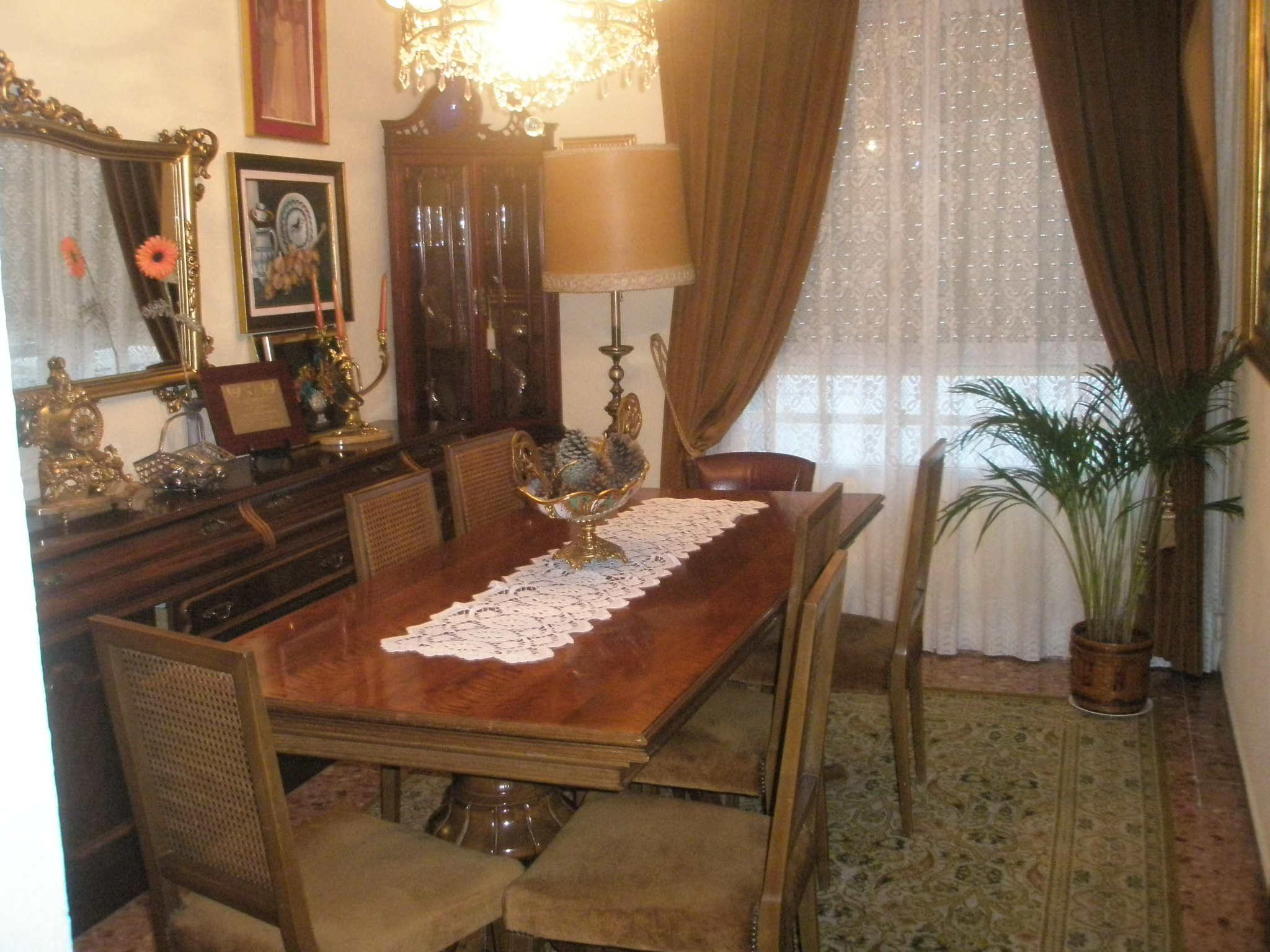
Making the Most of Your Host Family Experience
Dear Christina,
Surely, you’ve already had countless people tell you about what a great idea it is to choose the homestay option while you study abroad. You probably think it’s a great way to be immersed in the culture of your chosen country and, of course, I would agree with you. However, I want to make certain that you know the benefits of living with a host family do not simply come without any effort. As with most things in life, you’ll get out what you put into it so let’s talk about some tangible ways you can make the most of your homestay experience.
If you’re short on time, check out this quick video for the basics:
And if you’re interested in more details I’ve developed the video’s advice more below:
1.) Take time to get to know your family and understand their routine:
This sounds obvious, but so many people fail to truly do it. If you hope to connect with your host family and get the most out of your time with them, it’s essential that you know a bit about them and what they do on a regular basis. Do they usually spend a lot of time eating lunch together or is this something that each member of the family does on their own while rushing from one activity to the next? Paying attention to this can help you decide if it’s the best time to try to engage someone in a deeper conversation or not.
It’s important to remember to check in with this throughout your study abroad experience because things can always change. If you feel like you’re trying to make the effort to engage with your host family members but just not making the connections you seek, perhaps you’ve (subconsciously) chosen a time at which it’s difficult for them to give you their full attention and you would be better served and appreciated at another time. Or perhaps you purposely chose a time that was good for your host family at the beginning of your stay but, owing to a change in the children’s activities or parents’ work schedules, it’s no longer a good time.
Don’t forget that you’re dealing with a different culture and norms may be different. Coming from an American upbringing, for example, might lead you to wrongly assume that missing lunch on a regular basis is fine and that being home for dinner will provide you with ample time to connect around the dinner table. In Spain, however, the biggest family meal is often lunch and the dinner may be eaten at each person’s individual whim or sat around the television which is not necessarily as interactive.
 2.) Engage with them around the house:
2.) Engage with them around the house:
It can be easy to treat your host family simply as roommates and to “try not to get in their way” but remember that if you disengage for the everyday happenings, your host family may think YOU wish to be left alone and not ask you to participate either. Instead, take interest in whatever activities are happening around you. Offer to help your host mom or dad cook a meal or fold the laundry. Join your host siblings on the couch—without your laptop or phone in hand!—and really watch whatever it is they’re watching on television. If you don’t understand everything that’s almost better as you can ask them questions and this gets the conversation going!
Even if it feels like there’s nothing going on at home that you can get involved in, simply sitting in the shared areas can breed the possibility for more connection. Perhaps without either side realizing it, if you’re holed up in your room whenever you’re at home your family will be less likely to engage with you. On the other hand, if you sit down on the living room sofa to read or at the kitchen table to do your homework you may find that others are more likely to join you or at least make small talk as they pass you by. It may feel like such a small difference at first but poco a poco (little by little) you’ll have longer, deeper conversations and grow closer.
3.) Take them up on any invitation:
Again, it may not seem meaningful to go to the fruit stand with your host mom or to watch the football match with your host brother and his friends who are yelling things far too fast for you to follow. However, these are the little moments that lead to bigger connections! By showing interest in the invitations your family extends you demonstrate your willingness to get to know them, to help them, and/or to spend time together. Even if you know nothing about the activity they’ve invited you to tag along to or if you don’t exactly feel comfortable with the big group this activity will entail it’s the perfect opportunity to push your boundaries, challenge your language skills and grow…together!
 As with anyone in any culture, if your host family invites you to do things with them multiple times and you repeatedly decline, they’ll eventually give up. They may not realize they’ve simply invited you to the same thing that you’re uninterested in and that otherwise you would happily accept. Your time studying abroad is limited so I recommend taking as many invitations as you can! Make it clear that simply spending time with your host family is more important to you than the activity. (And if you later want to point out to them that you’re really not into football, fishing, or whatever they want to do, you’ve at least made the effort to give it a try first!)
As with anyone in any culture, if your host family invites you to do things with them multiple times and you repeatedly decline, they’ll eventually give up. They may not realize they’ve simply invited you to the same thing that you’re uninterested in and that otherwise you would happily accept. Your time studying abroad is limited so I recommend taking as many invitations as you can! Make it clear that simply spending time with your host family is more important to you than the activity. (And if you later want to point out to them that you’re really not into football, fishing, or whatever they want to do, you’ve at least made the effort to give it a try first!)
Keep in mind that not every offer to join in will be exciting. Perhaps your host family could use your help moving furniture or would greatly appreciate you spending time with the four year-old so that they can focus on something else they need to get done. You might be tempted to say no to these requests as “that’s not what you came abroad to do” but remember that your host family is meant to serve as just that—your FAMILY in your host country and family means being there for each other. Besides, having the opportunity to observe and take part in the family interactions outside of the specific outings they may plan with you in mind is a wonderful way to experience the authenticity of your host country!
4.) Try not to go away every weekend:
This tip is essentially a summation of all of the above because the most important factor of connecting with your host family is actually being there! Although you’ll be presented with tons of tempting places to visit, I highly recommend you prioritize a few weekends (in my opinion, at least one or two a month) to stay home. During the week, your time to connect with host family members may be more limited but at the weekends you’re likely to have more time on your hands and so will they!
 Spending weekends at home is especially important in Spain as many people get together with their extended family at the weekends for a big Sunday meal. In my experience, families are more than happy for you to join them in these gatherings if you’re around but they’re unlikely to tell you about them if you jet off every weekend. Instead of planning your trips on your own and informing your host parents later, consider chatting with them ahead of time about any important local holidays or family gatherings you won’t want to miss and then plan your travels strategically. Unless you specifically ask, I’ve known host families to leave out these details as they don’t want to create unwanted pressure or make you feel bad for missing something. However, if you show interest from the beginning they’ll likely keep you up-to-date on any family happenings.
Spending weekends at home is especially important in Spain as many people get together with their extended family at the weekends for a big Sunday meal. In my experience, families are more than happy for you to join them in these gatherings if you’re around but they’re unlikely to tell you about them if you jet off every weekend. Instead of planning your trips on your own and informing your host parents later, consider chatting with them ahead of time about any important local holidays or family gatherings you won’t want to miss and then plan your travels strategically. Unless you specifically ask, I’ve known host families to leave out these details as they don’t want to create unwanted pressure or make you feel bad for missing something. However, if you show interest from the beginning they’ll likely keep you up-to-date on any family happenings.
Not only will staying home on some weekends create stronger bonds with your host family but it will likely make you feel more connected to your host city as well. We have an entire other article on the importance of this because creating a home for yourself abroad can be difficult but it’s also really rewarding and, in my opinion, essential to thriving and getting the most out of your study abroad experience!
 Hopefully these four tips will help you connect with your host family and get the most out of your homestay experience. If you have any questions or your own advice to share, please don’t hesitate to comment below.
Hopefully these four tips will help you connect with your host family and get the most out of your homestay experience. If you have any questions or your own advice to share, please don’t hesitate to comment below.
Sincerely,
Spain




